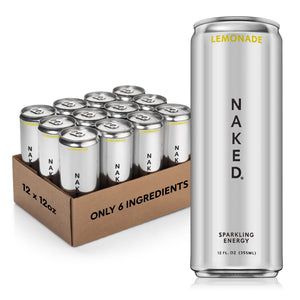
Most people tend to eat more during the holidays. With more celebrations, family gatherings, and parties, food is abundant.
It’s important to navigate the holidays in a way so that you can enjoy yourself, yet feel in control around food.
During the holidays, many people may end up binging or eating much more than they normally would.
This article will explain why people binge, how to prevent binging, and tips to get back on track after a couple of days of too much casserole, gravy, desserts, and alcohol.
Why Do People End Up Binging at Times?
It’s easy to overeat during the holidays. Most people eat more around the holidays when we’re celebrating, and this is totally normal.
However, bingeing takes overeating to a different level and can have harmful effects and perpetuate unhealthy behaviors and an unhealthy relationship with food.
Binging often results from restriction. When people restrict themselves – by either avoiding certain “bad” foods or not meeting caloric needs – bingeing often results. Guilt and shame often follow a binge, which then leads to restriction, and the cycle continues.
Some people restrict too much on a normal basis and then when indulgent food is present, self-control becomes quite difficult. Plus, having a non-neutral relationship with food and labeling items as “good” or “bad” can contribute to binging behaviors.
Remind yourself that a day or two of indulging a bit more than usual will not ruin progress. It’s normal to eat more fun foods around the holidays, and it’s a natural part of celebrating.

After a day or two of celebrating, it’s a good idea to get back to your normal routine to help you feel your best. This does not mean crash dieting, juice cleanses, or starvation plans. After all – these quick-fix dieting hacks do not work.
If you do end up bingeing during the holidays, give yourself grace, be gentle with yourself, and continue reading this article to understand how to best recover from a binge.
How to Prevent Holiday Party Binging

Tips to Quickly Recover After Holiday Eating

Okay, so you had a couple of days of indulging more than you usually do. Maybe you’re feeling a bit sluggish and bloated, and wondering how you can get back on track. Rather than start a crash diet or a cleanse, it’s important to be gentle with yourself and focus on nourishing your body with good nutrition and self-care.
Here are some tips to get back on track after a few too many drinks, desserts, and rich foods:
-
Start Slow with Exercise
Instead of beating yourself up about bingeing and forcing an intense workout, be gentle with yourself and start slow. Try some light cardio such as a brisk fitness walk or do some yoga to get back in tune with your body.
In fact, going for a walk after a binge can help speed up digestion which may relieve some discomfort from fullness or bloating after a big meal (1).
Be wary of exercising for the goal of burning calories as this can perpetuate an unhealthy relationship with movement and your body. Instead, remind yourself that movement is key for mental health, and to keep your body strong and flexible (2).
-
Nourish the Gut
After a binge, the digestive system has to work hard to process and digest all of the food it was given. Sometimes this can result in bloating, diarrhea, or constipation.
What’s more, after a large amount of food is in the stomach, contents can push up against the diaphragm, which can lead to heartburn.
Thinking about foods and supplements to nourish the gut and improve digestion can help you feel your best and get back on track.
Probiotics from foods or supplements can help aid digestion and may even reduce symptoms of heartburn after a big meal.
Bone broth can also help soothe the digestive system after overeating. Bone broth is easy to digest and it can help digest other foods. Plus, the gelatin in bone broth attracts water in the intestines, helping to move food through the digestive system.
After a big meal, try sipping on a hot cup of bone broth to aid digestion. Our bone broth protein powder is easy to take when you’re on-the-go. Simply mix the powder with hot water and sip after a big meal to support digestion.
-
Focus on Nutrient-Density
Giving your body good nutrition can help you feel your best after a binge or a few days of indulging. Aim to include a wide variety of nutrients from protein-rich foods, vegetables, fruits, and healthy fats like olive oil, nuts and seeds, for example.
In addition to consuming nourishing whole foods such as a large green salad with grilled fish, or a big vegetable and bean soup, taking certain nutrition supplements can give your body an extra nutritional boost.
Naked Greens is one supplement that can help provide your body with a powerful dose of nutrients. It’s made from a blend of six different organic vegetables as well as probiotics, prebiotics, and adaptogens that work together to support overall health and the immune system.

After all, a few days of holiday eating may mean you’re not getting as many vegetables as you should, so taking a greens supplement can be helpful to give your body the nutrients it needs.
Simply add the powder to soups, stews, or smoothies, and you can feel great knowing that you’re giving your body a lot of great nutrients.
-
Prioritize Rest
Getting enough sleep after a period of overeating is a good idea to help regulate appetite and ward off cravings.
Plus, not getting enough sleep has been shown to increase appetite, which may only perpetuate overeating and/or bingeing. In fact, research shows that sleep deprivation leads to increased cravings, especially for calorie-dense foods (3).
Additionally, not sleeping enough can lead to a rise in the body’s production of ghrelin, which is a hormone that increases appetite.
After a binge or a period of overeating, it’s recommended to get a good night’s sleep to start the next day feeling well-rested and refreshed.
-
Eat Balanced Meals
After bingeing it’s common to want to skip meals and undereat to compensate for the overeating that occurred. However, this can actually do more harm than good as it can perpetuate the binge-restrict cycle.
Skipping meals will only lead to increased hunger, leading to a higher risk of overeating. On the other hand, adhering to a regular eating plan can help you get back on track more efficiently.
Aim to eat balanced meals and snacks that consist of protein and fiber every 3-5 hours. Following this eating plan can help regulate cravings and stabilize blood sugar.
Including meal replacements and snacks such as Naked Shake can help people meet their needs when they’re on the go or if they don’t have time to meal prep.
Key Takeaways
During the holidays, it’s common to overeat. There are ways to help prevent overeating and bingeing such as following a balanced diet, giving yourself permission to indulge, and tuning into your body’s signals.
However, there still might be times that bingeing occurs. To get back on track after a binge it’s important to be gentle with yourself and nourish your body with nutrient-dense foods, light exercise, regular meals, and supplements.
Rather than embark on crash diets or any extreme measures after a binge, choose body kindness and nutrient-density to help you feel your best after a few days of over-indulging on holiday treats.













